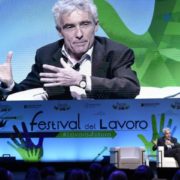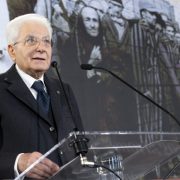A general concern about the unity of the universal Church and the situation of the Church in China led to the recent drafting of the Pastoral Guidelines of the Holy See Concerning the Civil Registration of Clergy in China. For Rome, the key issue perhaps was that even when recognizing the special situation of China and its political qualms, the relationship between Catholic bishops and civil authorities can’t differ too much from the condition of bishops in other parts of the world—otherwise, the unity of the Church would be broken and it would no longer be Catholic (see SettimanaNews).
In other words, the Chinese state can’t have too much power over the Chinese Church otherwise other countries could demand the same powers over the Church, and then everything would fall apart. Then rather than this, the Church would give up nothing.
On the other hand, the political reality of China can’t be ignored, either. Here, perhaps it is not accurate to speak of “the persecution of Christians”. There is persecution of Christians when Christians are singled out for specific discriminatory treatment, such as when Buddhists or Taoists are given privileges that are denied to Christians.
In fact, this is not the case in China. Christians and Catholics in particular might be treated better than other religious groups, for instance Muslims.
There is in China an overall suspicion about all religious groups. All religions are allowed, and even recognized as positive for social harmony, but the state is afraid of them becoming “too independent” and thus hotbeds of possible revolution. The 1999 rise of the Falungong movement (a semi Buddhist religious movement embedded deep within the Chinese army and police) is proof to the Party of the dangers of religious organizations.
Actually, the handling of religious organizations by different local officials, worried about “not making mistakes” and thus not being punished, can be quite strict. Local officials are promoted or demoted based on their performance, and in this a special part is given to social peace, which includes the possibility that religious groups may stir up trouble.
Moreover, there is the further concern about Church assets. The bishop is the legal representative of the Church’s assets in his diocese, which could be worth billions of RMB. Civil authorities do not feel comfortable granting all these assets to men whom they don’t fully trust.
To meet all these very practical concerns, the Holy See issued its guidelines, recommending bishops to sign an official statement with local authorities but specifying their religious loyalty to Rome, in the case of questions of conscience.
The most controversial issue in the statement is the interpretation of the word “independence” concerning the Catholic Church in China. Chinese authorities admit that this doesn’t mean “religious independence”, as the Pope has been recognized as the ultimate authority on the choice of bishops. But still some bishops may not feel comfortable putting their name on a piece of paper calling for the independence of the Church in China. Therefore, Rome suggests adding in writing or saying before witnesses that this means just civil independence.
De facto Rome says, “Chinese bishops must obey Chinese law, and the Catholic Church is not a revolutionary party. According to the agreement, Chinese authorities admit that the Chinese bishops are and must be in communion with Rome. If individual bishops have doubts about the statements imposed by local authorities, this can be resolved with an open declaration of religious loyalty to Rome. As always in the Church, priests and the faithful must adhere to the bishop’s choices if they are to stay in the the Church”.
But actually, with these guidelines, Rome is directly telling some Chinese citizens what to do in China. The act itself could be contrived as a violation of Chinese absolute authority in its territory—nobody tells Chinese people what to do in China but the Chinese government—although the guidelines also tell those Chinese citizens to obey Chinese laws.
Chinese authorities have not protested this “legal invasion”. This reveals that de facto at least some people recognize a problem: some Chinese citizens are not entirely happy with the moral authority of their own state, in this case some Christians. Behind this lurks an even bigger issue. The Chinese state recognizes it lacks total moral authority, as happens in all modern states, and this “surplus” moral authority can be lent by a religious authority, in this case by Rome. This de facto could create new dynamics in the Chinese state.
In essence, these issues are somehow similar to the ones at the very heart of the present U.S.-China trade controversy. The U.S. in a nutshell asks that China open its market to foreign exports and investment, as foreign markets are open to Chinese exports and investment. America says, there can’t be a double standard any longer. This request in principle may be fair, but de facto in order to comply, China should undergo massive internal economic and political reforms.
Beijing is not ready for this, and moreover some Chinese fear that America is actually using the “trade war” to scuttle the Chinese economy and political system. This in turn, may also be an excuse for the conservatives in China. But it is true that between the U.S. and China there is deeper mistrust of each other’s intentions. With the Vatican, the basis is conversely a deepening mutual trust that allows some progress. For the Chinese government, not to protest these guidelines is an important sign of opening.
Yet, this progress is seen from the Chinese perspective. From a general perspective of the universal Church, those may appear to be excessive concessions to the Chinese state. In fact, allegedly some voiced their concern to the Pope. Allegedly the Pope deflected these criticisms, trusting his present course. In this there may be also a small, narrow path that could help solve peacefully the present trade controversy, which otherwise could easily spin into heavy military confrontation.
Still, despite the Pope, there should also be a deeper concern for Beijing. The ongoing demonstrations in Hong Kong show the world that the people who were closely associated with Beijing and ruled by Beijing, the ones in Hong Kong, although granted freedom of expression, do not trust Beijing.
How can the rest of the world trust Beijing then? The Pope does, evidently through a leap of faith and many years of patient dialogue away from the limelight, but other people perhaps can’t be expected to have the faith of the Pope. Therefore, on the one hand, Beijing evidently may want to do much more to gain global trust. On the other hand, if the people of Church do not hope and work for peace, then who can? Maybe, then, on this path of the Church there is also the path to global peace around China.





